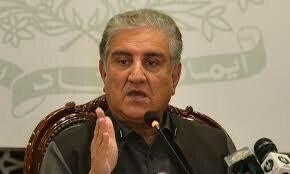LAHORE: Lack of a vigorous campaign unlike the one for NA-122, no criteria for selection of candidates, politics of confrontation and infighting are among the factors that led to the debacle of Pakistan Tehreek-i-Insaf (PTI) in the first phase of local body elections in the city on Oct 31, reveal background interviews with party leaders.
Leaders, both provincial and local, admitted the PTI could not run an effective campaign as it had for the by-election in NA-122.
They said neither their candidates opened coffers for electioneering nor organised an effective campaign, while central leaders such as Imran Khan and others were also missing from the scene.
Even Abdul Aleem Khan, the Lahore chapter president who had contested the NA-122 by-polls and allegedly spent hundreds of thousands of rupees on his electioneering, was rarely seen during the campaign for local polls, and the show was run by Punjab and Lahore organisers Chaudhry Sarwar and Shafqat Mahmood, respectively.
Ironically, both lacked direct experience of Punjab and Lahore politics, as Sarwar led most of his life in the UK, while Mahmood had a background in bureaucracy. On the other hand, the PML-N had locals such as Khawaja Saad Rafique, who knew each and every political and influential figure of the city, they said.
Pointing out intensity of the division within the party, some recalled that opposition leader in the Punjab Assembly Mian Mahmoodur Rashid had been missing from the election campaign of Aleem Khan and, similarly, some groups were working against the other group in the party to the advantage of rivals in the local polls.
Political acumen of the PTI chairman was also challenged for, according to them, appointing the two leaders for overseeing the electoral bout.
“Our leader doesn’t know whom to assign which task, while in contrast the Sharifs are well aware of when to make Khawaja Asif play on the front foot and when Chaudhry Nisar,” one of the local leaders regretted.
He claimed the PML-N leadership had done complete homework on ground realities, especially after the tough fight in NA-122, and was well aware of which constituency the party could lose in, so they had targeted those union councils for development work and influencing powerful individuals.
According to them, the Reham Khan episode also affected the party, particularly voters from lower-middle and lower classes where divorce was still considered a taboo.
Selection of candidates without any criteria was another factor supposedly behind the defeat. There were cases in which aspirants, who had been denied PML-N tickets, managed to get nominations from the PTI only a couple of days before the last date set by the election commission for the purpose.
There was no introspection either, and subsequently corrective measures, over failure of the party in the by-polls both in Punjab and Khyber Pakhtunkhwa, as the leadership continued to harp on about rigging in the general elections, a couple of officials suggested.
Some PTI elders asserted that reduction in duration of power loadshedding and rosy pictures being painted by the media about the China-Pakistan Economic Corridor also impacted voters as people believed that though the PML-N governance was not ideal, but at least it was going in the right direction.
Certain development and relief packages announced before and after announcement of the election schedule also tilted the voters in favour of the ruling party, they added.
Published in Dawn, November 4th, 2015
On a mobile phone? Get the Dawn Mobile App: Apple Store | Google Play












































